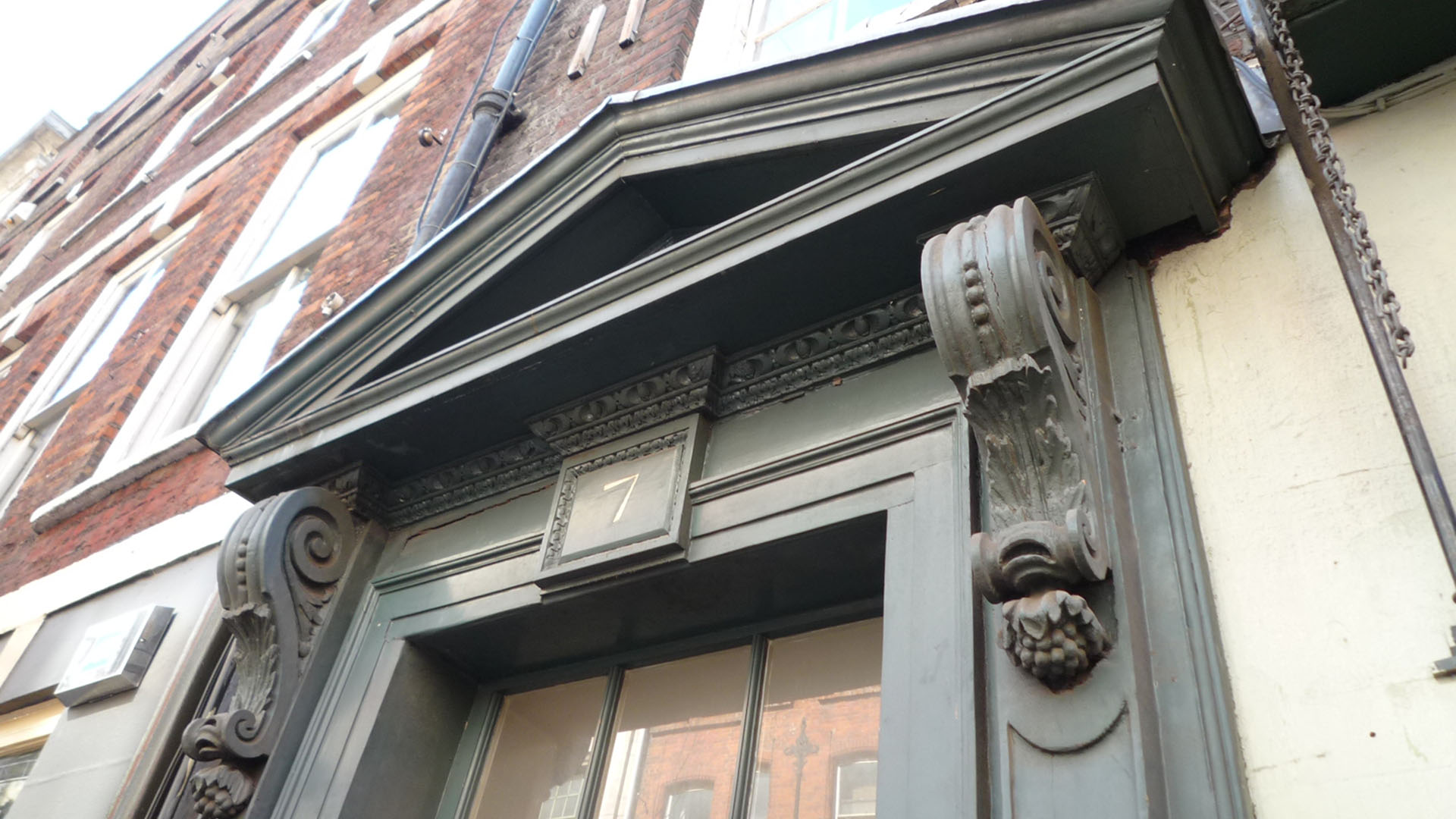Rare-Surviving 17th Century Houses Given Grade II* Protection
- Two rare 17th century terraced buildings in Denmark Street, London given Grade II* listing for their well-preserved architectural detail
- They chart Soho's history, from middle-class origins through slum conditions and then commercialisation, to the heart of the British music industry in the 1960s and 1970s
- One outbuilding features graffiti by Sex Pistols - the only physical trace of Punk Rock surviving in the street
- Listing takes place in the year of 'Punk London: 40 years of subversive culture'
The Department for Culture, Media and Sport has given Grade II* listing to two rare 17th century town houses in London on the advice of Historic England.
Nos. 6 and 7 Denmark Street, London are two of eight original buildings to survive on a street that was laid out between 1686 and 1691 and both have retained much of their character and original features such as panelling, cornices and staircase. They stand out as rare examples of 17th century town houses and have today had their listing upgraded from Grade II to Grade II*, a high category that only 5.5% of listed buildings are in.
Charting the history of Soho
The houses would have been built for the middle classes but during the 18th and 19th centuries the area became a notorious slum, the St Giles Rookery. By the 19th century the houses moved towards commercial use with a number of outhouses becoming metal-working businesses and ground floors became shops.
The heart of the British music industry
In the 20th century, music publishers and sellers of sheet music appeared on the street and it was there that Melody Maker was founded in 1926. By the 1960s and 1970s, Denmark Street was at the heart of the British music industry at a time when its creativity and international influence was at its peak. The street was in its heyday with virtually every building and shop having a connection to music. The Rolling Stones recorded their first album at Regent Sound Studios at no. 4 and the street featured in the early careers of musicians such as David Bowie, who is rumoured to have camped in a second hand ambulance van in the street, and Elton John who worked at a music publishers at no. 20 and wrote Your Song in the street.
Sex Pistols’ studio
The outbuilding of no. 6 is a former workshop, likely to have been built for a silversmith. From about 1975 - 1977 it was leased by Malcolm McClaren who needed a base for his new group, the Sex Pistols, the band credited by many as the originators of Punk Rock. The downstairs room was used as a studio to record early demos and initially Steve Jones and Glen Matlock lived in the upstairs room.
Despite the importance of the street in this musical history, few tangible traces remain in its fabric. However the Sex Pistols left their mark on the outbuilding. The upstairs room contains drawings and graffiti made by John Lydon on the walls. Other bands who used the room in the following years added to the graffiti which remains there today.
Heritage and First World War Minister David Evennett said:
"These 17th century townhouses not only exhibit well-preserved architectural detail but helped nurture Soho's influence on the global music industry during the 1960s and 1970s. As we celebrate 40 years of punk, I'm delighted to be granting further protection to these buildings which acted as a home and studio to the Sex Pistols."
Emily Gee, Head of Designation at Historic England said:
"Numbers 6 and 7 Denmark Street are some of the very few surviving late 17th century town houses which still have their original character, fixtures and fittings. For this reason they deserve to be listed at Grade II*. The outbuilding at number 6 also features one of the few physical traces of the importance of Denmark Street to the music industry, with graffiti by John Lydon still on the walls. Cultural phenomena can be difficult to capture in the historic environment, yet here we have an imprint of one of the country's most famous bands. These houses chart the history of Soho, and we're delighted that they're being given such important status."
Richard Metcalfe, Consultant at Consolidated Developments who own the buildings, said:
"St Giles Circus is set to continue as an internationally recognised destination for music, culture and creativity, set in the heart of London. We will continue to deliver a diverse scheme that showcases leading international culture in an iconic setting known for its music and heritage. Having worked alongside the Mayor's Music Venues Taskforce and Camden Council, we are looking to rejuvenate life back into 'Tin Pan Alley' and revitalise this music street."





